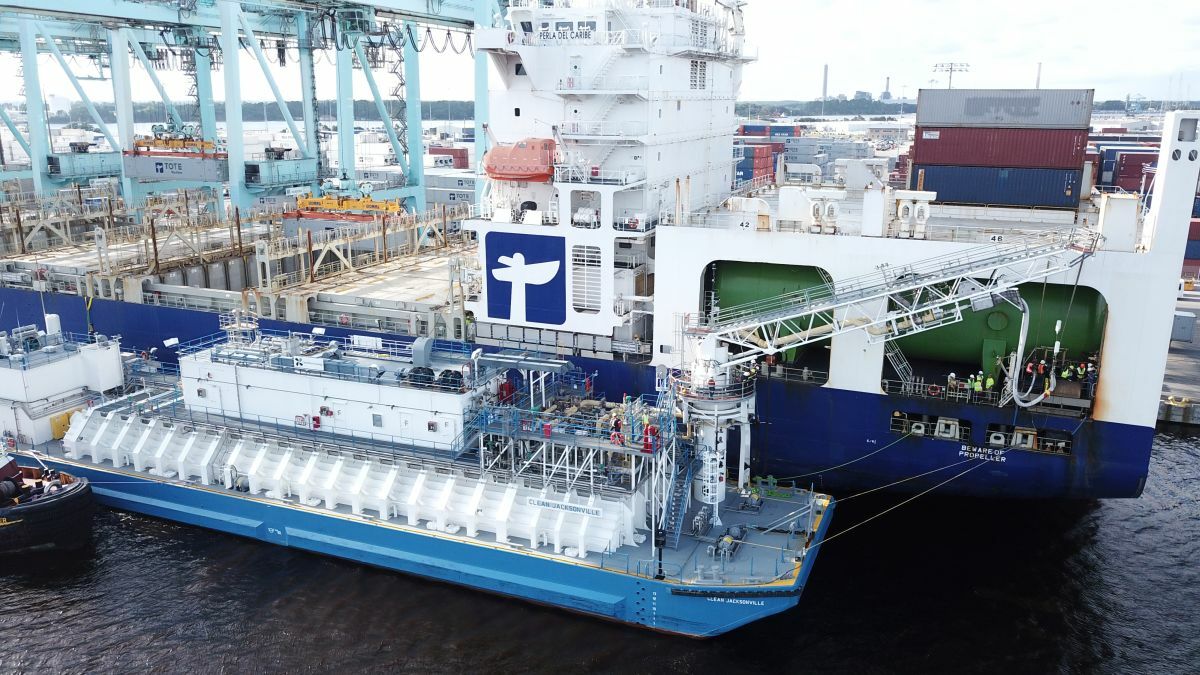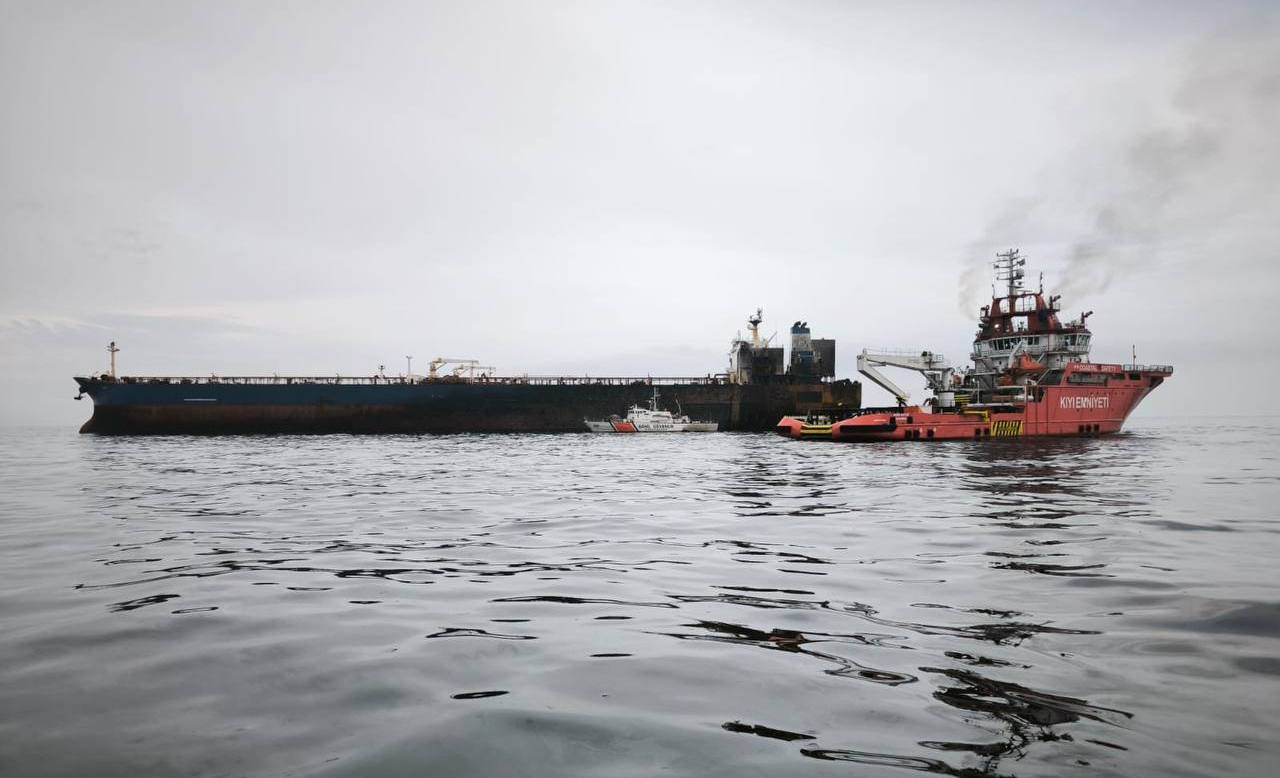Cargo ships are seen sailing under storm clouds in the sea near the port of Piraeus in Athens, Greece in this March 5, 2015 file photo. REUTERS/Alkis Konstantinidis
 By Tom Bergin
By Tom Bergin
PIRAEUS, Greece, Nov 25 (Reuters) – On the day he took office as Greece’s shipping minister in June 2012, Kostis Moussouroulis received a visit from a 90-year-old shipowner. He still remembers the older man’s words: “Don’t forget, the best minister of shipping and maritime affairs is the minister who is doing nothing for the shipping industry. He is the one who is leaving us alone.”
That’s the way Greek shipowners like it. The magnates who run one of the biggest merchant marine fleets in the world have long argued that if Greece tried to tax them, they would leave – and that their departure would devastate the economy. In recent years, as international institutions repeatedly bailed out Greece, the lenders have also pushed Athens to beef up its tax take. Shipowners have resisted any effort to ditch the tax breaks they enjoy, and no government has dared touch them.
“Shipping is a pillar of the Greek economy,” says the Union of Greek Shipowners, the ocean-going industry’s main association.
Greece’s statistics office says shipping contributes around $9 billion – or 4 percent – of the country’s Gross Domestic Product (GDP). When you include related business, the industry says, the figure jumps to 7.5 percent of GDP, or about $17 billion a year. Deep-sea shipping and related trades employ more than 192,000 people, it says. That’s 4 percent of all Greek workers.
But a Reuters analysis of corporate filings and economic data suggests shipping’s heroic role in Greece’s economy is largely a myth.
That’s because Greek shipowners include in their statistics billions of dollars which never actually enter the Greek economy. If Greece counted only payments to Greek companies and individuals – as other countries do – the deep-sea shipping industry’s contribution would be equivalent to around 1 percent of GDP.
For Greece, the cost of the tax breaks granted to shipowners runs into hundreds of millions of euros. Though that is small compared with the country’s debt, plenty of other citizens have had to tighten their belts. The country has cut jobless benefits by one-fifth, and health spending by a tenth, between 2009 and 2012 in exchange for bailouts from the European Union and International Monetary Fund. The nation’s farmers have seen their tax breaks axed and Greece has raised taxes on high earners. Shipping magnates, on the other hand, have their exemptions written into the constitution.
The shipowners “are powerful in that they … get the media to write what they want,” said economist and former finance minister George Papaconstantinou. “And immediately when you start touching them you start to hear: ‘We are 7 percent of the economy we bring 17 billion every year, 200,000 jobs’ … That’s not the case.”
Syriza, the governing party of Prime Minister Alexis Tsipras, initially promised to end the industry’s generous tax allowances. Shipping Minister Thodoris Dritsas concedes the way Greece measures its shipping industry is not effective. He said the government is reviewing the tax system and expects to publish details next year.
But while he said changes for shipping are possible, the government is reluctant to advocate anything that would damage shipping groups.
“What is very important for us is maintaining the competitiveness of Greek shipping,” he told Reuters in his office across Piraeus harbour from dozens of tree-shaded ship management offices. The ministry has a dilapidated air: Paint peels off the walls and staff ferry documents in supermarket shopping trolleys.
The Union of Greek Shipowners declined to comment on the Reuters analysis, but said any suggestion it used political or media influence to perpetuate inaccuracies about its economic contribution was “a completely false allegation.” It used official data and analysis by respected bodies, it said. “The Greek shipping community stands on its stellar track record as the global success story of Greece.”
The industry says government tax revenues from Greek shipping have increased more than eightfold since the outbreak of the economic crisis. It said this was due to a number of factors including the fact that in 2013, the industry volunteered to pay 420 million euros in extra taxes over several years.
Greece’s central bank and its statistics office ELSTAT, which publish official data on the economy and the industry, said they follow international rules on counting the economy. Both declined to comment on Reuters analysis. The Ministry of Finance did not respond to requests for comment.
MARITIME NATION
A nation of more than 1,000 islands, Greece’s history and culture has been intertwined with the sea since the Battle of Salamis against the Persians in 480 BC, when the Greeks trapped the invading fleet in a narrow strait.
The modern industry grew up in the 19th century. Trading families bought vessels to transport goods between the Black Sea and northern Europe. Over time, they began to provide freight for others. Greeks now operate some of the world’s biggest tankers and bulk carriers.
Three things helped: Greece’s location at the crossroads of Europe, Asia and Africa; a cosmopolitan outlook; and low taxes.
Even in those early days, though, the industry’s international nature sparked doubts about how much money it generated for Greece.
In 1933, Emmanouil Tsouderos, then the Bank of Greece’s governor and later a prime minister, published a report which found that shipping was the country’s biggest source of foreign exchange. The industry brought in 5.9 million pounds sterling equivalent (roughly $450 million in today’s money), around 20 percent more than tourism, he said.
But in his report, the central banker added that not all this money could be counted as a contribution to the economy. So many of the industry’s expenses – fuel, port fees, labour and repairs – were incurred overseas that Greece would never see all the cash. Tsouderos decided that only about a third of the shipping money remained in the country.
Today, Bank of Greece statistics show, shipping receipts are worth some $15 billion a year. That is equivalent to almost 7 percent of GDP, and just behind the $18 billion brought in by tourism.
But unlike Tsouderos, the Bank does not specify how much of this stays in Greece.
Some in the industry still say shipping counts for more than tourism.
“It’s not like tourist money,” said John Coustas, Chief Executive of Danaos Shipping, one of the largest Greek shipping groups. The problem with the tourism industry, he said, is that Greece has to import goods to supply tourists’ needs. “In shipping this is a pure contribution,” he said, sitting in his wood-panelled office overlooking Piraeus port, surrounded by oil paintings of 19th-century shipping scenes.
TOO BIG TO TAX
Greek shipowners have long argued that their industry is too special to tax. After the Second World War, when the cash-strapped government wanted to introduce a levy on shipping companies, owners responded by moving their vessels to companies in tax havens such as Panama.
To keep them sweet, the government in 1953 enshrined tax breaks for shipowners in the constitution. Greece started to allow shipping companies to pay a nominal fee, known as a tonnage tax, instead of a tax on profits. The tax varied widely and was sometimes as low as $1 for each “taxable ton” of a ship’s weight. Shipowners were exempted from tax on their incomes.
This brought some shipping operations back, but the companies which owned the fleet remained registered in Liberia, Marshall Islands and Panama, according to documents, government officials and industry executives. Shipowners wanted to keep their assets safe from volatile local politics.
Today, instead of Greek-based ships manned by Greek sailors, shipping in Greece is mainly made up of small management offices in Piraeus that collect freight fees on behalf of their tax-haven registered parents. The management firms oversee the movements and maintenance of the ships, which rarely if ever visit Greece. In return, the management firms receive a small share of the shipping fees.
It’s not clear how many jobs the industry generates. In 2012, ELSTAT said 5,100 Greeks were employed on Greek-flagged deep sea vessels. Industry-backed studies add about 6,000 Greek sailors on foreign-flagged ships, and around 15,000 jobs onshore. On top of that, they assume the industry generates over 100,000 more jobs indirectly.
Companies and government officials say the Greek-run fleet – like most – mainly employs sailors from developing countries.
The dividends paid by many Greek shipping firms also often stay offshore. The country does not count actual dividends paid, but filings by firms which do disclose their dividends suggest the total paid both on and offshore could be over $1 billion a year.
Shipowners, too, often live outside Greece. More than half the shareholders in big Greek shipping companies are based elsewhere, including famous magnates such as George Economou, who lives in Monaco, and John Angelikousis, who lives in London. Other big names such as Philip Niarchos and Spiro Latsis live in Switzerland, filings in the UK and Switzerland show. They declined to comment on their residence.
Such a globalised structure is common enough around the world. Less common is the way Greece counts this business.
DROP IN THE OCEAN
Countries like Britain and Norway only consider the fees made by shipping companies that are registered on their territories.
They do this partly to reflect economic reality, but also because statistical bodies can’t reliably count money paid or people employed by firms in tax havens, said Robin Lynch, who used to measure GDP at Britain’s Office for National Statistics.
Norway’s statistical service takes that a step further. One measure of GDP it produces strips out Norwegian-registered shipping companies completely. Sabina Du Rietz, a GDP expert at the Norwegian School of Economics, said this is deemed a better measure of the economy, because the shipping industry employs mainly non-residents and has “negligible effect on domestic demand.”
Greece’s statistical agency ELSTAT, on the other hand, counts the whole industry as if it were based in Greece. It includes in its national accounts the full freight fees that are collected by shipping companies registered in tax havens. This means it counts wages paid to non-Greek seamen and dividends paid to non-Greek shareholders.
If Greece counted only fees paid to Greece-based management companies, the industry would be much smaller.
A total of 17 of the largest Greek shipping companies, with a combined turnover of $2.5 billion, published their fee income for 2013. They paid $123 million in management fees to their Greek offices that year, the accounts show. Some of these management firms had branches outside Greece, so not even all of this modest amount stayed in the country.
Assuming management fees across the industry run at a similar level, the total direct onshore impact of shipping groups would be around $700 million that year, Reuters calculations show. Adjusting for costs, the direct contribution to GDP would be around $500 million, compared to the $9 billion or so recorded by ELSTAT.
Including payments to suppliers, sailors and dividends, the contribution to the economy would be around $2 billion. That’s just over a tenth of the figure cited by the industry.
The Reuters estimates are based on a sample of companies which generate about a fifth of shipping export earnings. They may not be representative, although accountants and industry executives say all shipping companies have similar structures and face similar costs.
Nadim Ahmad, head of trade statistics at the Organisation for Economic Co-operation and Development, said Greece is entitled to count the shipping sector as it does. But capturing so much activity outside the economy means the result can be misleading, he said. “Is it right to say: ‘This GDP is generated in this country, ergo it necessarily follows that this is the benefit that accrues to this economy’? It’s obvious the answer is no.”
PR OFFENSIVE
Despite this, Greek shipping owners have managed to convince a succession of governments that they deserve special treatment.
After the fall of the military junta, which ruled from 1967 to 1974, shipowners worried they might lose their tax exemption and mounted a public relations offensive, according to a study by Ilias Bissias, a lecturer at the University of the Aegean who has worked in communications at shipping groups. Normally secretive, shipowners began to give press interviews “to bond with the general public,” Bissias said. And they invested in media groups, which some politicians say they use as a platform to highlight the industry’s contribution.
Greece’s leaders don’t question the industry’s importance, said Yannos Papantoniou, who was finance minister from 1996 to 2001. “For us, shipping is a desperately needed source of foreign income, which addresses the country’s fundamental weakness which is the lack of foreign exchange,” he said.
Gikas Hardouvelis, who was finance minister until January this year, said the importance of the sector gives it political power. “There are people in Greece who think these people should pay taxes. People in the ministry, they were gung-ho to grab them. I tend to be more liberal because I understand that these people have options,” he said.
Papaconstantinou, the former finance minister who said he doubted the importance of shipping to the economy, is one politician who wants change. He told Reuters the government should commission an independent report to estimate the real contribution of the sector. But he said the industry would resist.
“It’s not by accident that you do not have an authoritative independent study of this,” he said.
(Additional reporting by Nikolas Leontopoulos, Silvia Aloisi and Eleftherios Papadimas in Athens; Edited by Sara Ledwith and Simon Robinson)
(c) Copyright Thomson Reuters 2015.

 Join The Club
Join The Club











